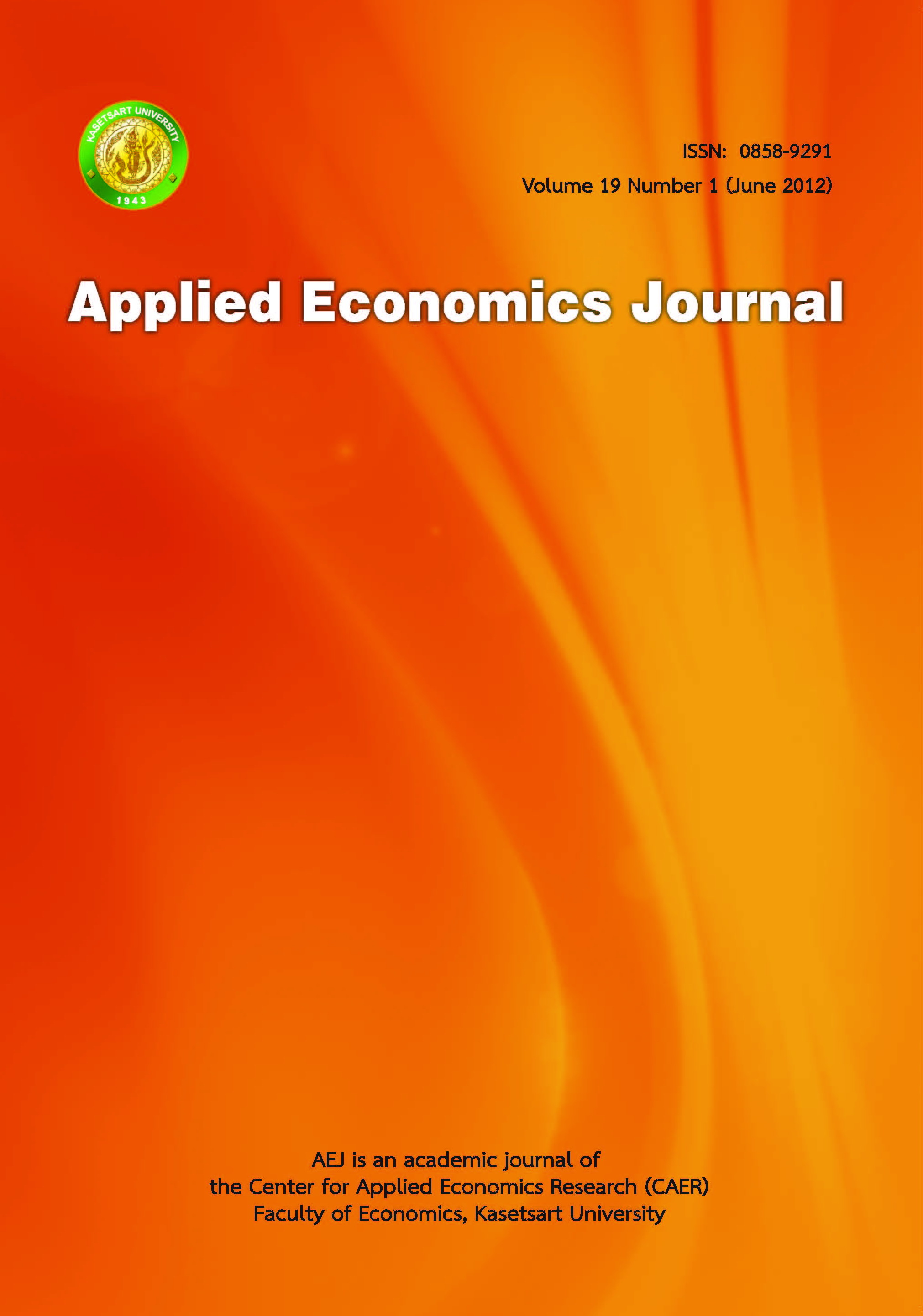ประสิทธิภาพที่เพิ่มขึ้นในการส่งผ่านข่าวสารข้อมูลของตลาดหุ้นไทย
Main Article Content
Abstract
บทคัดย่อ
การศึกษาครั้งนี้ประยุกต์ใช้แบบจำลอง time-varying STAR ในการทดสอบประสิทธิภาพที่เพิ่มขึ้นตามเวลาในการส่งผ่านข่าวสารข้อมูลของตลาดหุ้นไทย แบบจำลองพรรณนาพฤติกรรมการเปลี่ยนแปลงตามเวลาของอัตราผลตอบแทนโดยใช้กระบวนการ autoregressive process จำนวนหนึ่งขั้นกระบวนการและมากกว่าหนึ่งขั้นกระบวนการขึ้นไป โดยให้ความสำคัญแก่กระบวนการเหล่านั้นในระดับที่แตกต่างกันตามแต่ละจุดของเวลา ตัวแบบมีความยืดหยุ่นเพียงพอที่จะพรรณนาพฤติกรรมการเปลี่ยนแปลงของระดับประสิทธิภาพทั้งกรณีที่เป็นแบบค่อยเป็นค่อยไปและกรณีที่เป็นแบบฉับพลัน นอกจากนี้ การวิเคราะห์พิจารณาถึงกรณีข่าวสารข้อมูลย้อนหลังจำนวนมากกว่าหนึ่งช่วงเวลา เพื่อลดข้อจำกัดที่พบในการศึกษาที่ผ่านมาที่มักพิจารณาข่าวสารข้อมูลย้อนกลับไปเพียงหนึ่งช่วงเวลาเท่านั้น การศึกษาใช้ข้อมูลอัตราผลตอบแทนรายวันของดัชนีตลาดหลักทรัพย์แห่งประเทศไทยตั้งแต่วันที่ 30 เมษายน 2518 ถึงวันที่ 11 พฤษภาคม 2554 ทั้งนี้พบว่าระดับประสิทธิภาพของตลาดหุ้นไทยเพิ่มขึ้นตามเวลาอย่างมีนัยสำคัญและเป็นแบบค่อยเป็นค่อยไป
คำสำคัญ : ประสิทธิภาพของตลาดการเงิน, การส่งผ่านข่าวสารข้อมูล
Abstract
The study tests the evolving market efficiency of Thailand’s stock market using the time-varying STAR model with a p > 1 lag. The model is flexible in that it can describe gradual or rapid changes in the efficiency level. The p lags are general enough to incorporate information of up to p days old into stock prices, as opposed to the 1 lag imposed by previous studies. Analysis of the daily SET index sample data from April 30, 1975 to May 11, 2011 shows that the market efficiency rose gradually rather than suddenly at certain periods. The degree of efficiency is significantly higher today than it has been in the past.
Keywords : market efficiency, information dissemination, time-varying STAR model
JEL Classification : G14
Article Details
The paper is published under CC BY-NC-ND, in which the article is freely downloaded and shared in its original form non-commercially and its citation details are identified.


